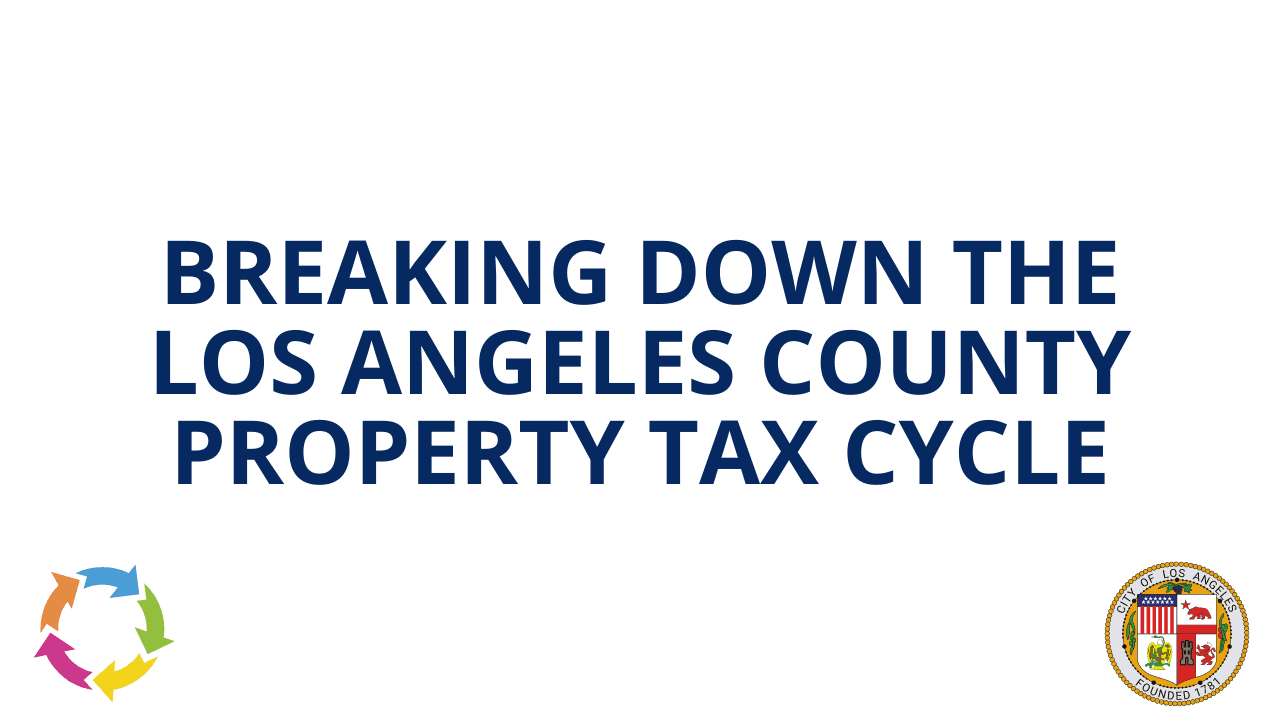
Understanding the property tax cycle in Los Angeles County is crucial for both homeowners and commercial property owners. Property taxes are a significant part of the financial responsibilities associated with property ownership and can influence investment strategies and budgeting.
This article will dissect the Los Angeles County property tax cycle, from assessment to payment, and offer insights into navigating this complex process.
Property in Los Angeles County is reassessed annually by the County Assessor. The assessed value is supposed to reflect the fair market value of the property as of January 1 of each tax year. This valuation forms the basis for the property tax bill.
Several factors can influence the assessed value of a property, including market conditions, property improvements or modifications, and changes in ownership. Special attention should be paid to any alterations that might increase the property's value.
Once the property's assessed value is established, the applicable tax rate is applied. In California, the base tax rate is set at 1% of the assessed value, as per Proposition 13, plus any local voter-approved debt levies.
Besides the base rate, property owners in Los Angeles County might also pay various assessments for local benefits like street lighting, parks, and school district funding. These can vary significantly between different areas within the county.
Property tax bills are typically mailed out by the Los Angeles County Tax Collector in October and are due in two installments. The first installment is due on November 1 and becomes delinquent if not paid by December 10. The second installment is due on February 1 of the following year, with a delinquency date of April 10.
Los Angeles County offers several payment options, including online, by mail, or in person. Property owners should ensure payments are made on time to avoid penalties and interest for late payments.
Late payments are subject to penalties. If taxes remain unpaid, the property can eventually be subject to a tax lien sale at public auction. It is crucial to adhere to payment deadlines to avoid such consequences.
If property owners believe their property has been overvalued, they have the right to appeal the assessment. The appeals process involves filing a formal appeal with the Assessment Appeals Board and may require presenting evidence to support claims of overvaluation.
Navigating the property tax cycle in Los Angeles County demands an understanding of assessment processes, tax rate determinations, and diligent financial planning. By staying informed and proactive, property owners can effectively manage their property taxes and avoid unnecessary penalties.
Q1: How can I check the assessed value of my property in Los Angeles County?
A1: You can check the assessed value of your property by accessing the Los Angeles County Assessor's website or contacting their office directly.
Q2: What should I do if I don't agree with my property's assessed value?
A2: If you disagree with the assessed value, you can appeal to the Los Angeles County Assessment Appeals Board by filing an appeal during the filing period.
Q3: Are there any exemptions available that can reduce my property tax bill in Los Angeles County?
A3: Yes, there are exemptions like the Homestead Exemption that can reduce your property tax bill if you qualify. Information about exemptions is available on the County Assessor's website.
Q4: How often can property values be reassessed in Los Angeles County?
A4: Property values can be reassessed annually, but significant reassessment occurs when there is a change in ownership or new construction on the property.
Q5: What happens if I miss a property tax payment in Los Angeles County?
A5: Missing a payment can result in penalties and interest charges. Continued non-payment may lead to a tax lien and potential sale of the property at a public auction.
We'll help you challenge your Los Angeles commercial property assessment appeal.
Get a free tax review for your commercial property